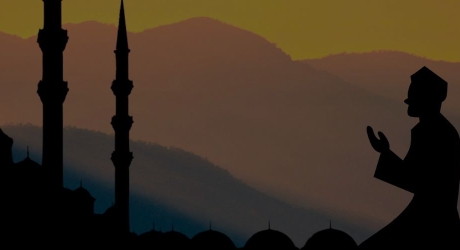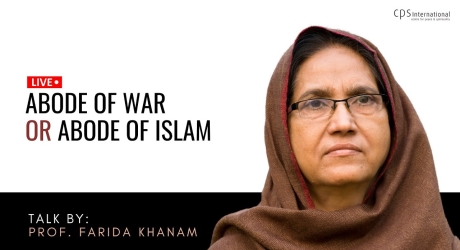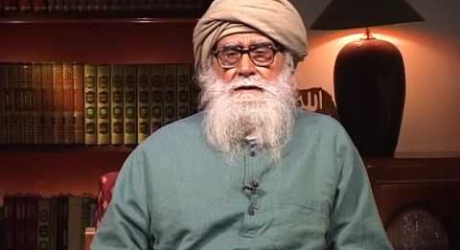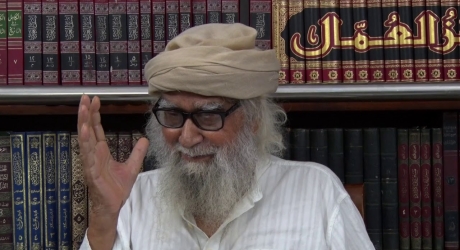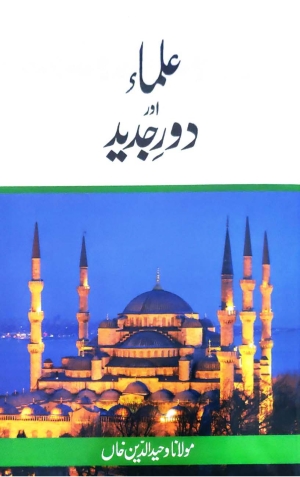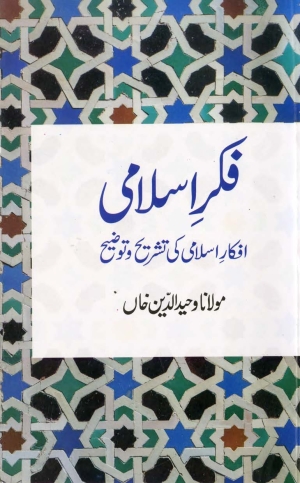The terms Darul Islam, Darul Harb and Darul Kufr do not occur in the Quran or Hadith. However, they were invented for the first time by jurists during the Abbasid period. According to this division derived from Muslim’s ijtihad, the world was divided into two large regions. The part of the world ruled by Muslims was called by the Muslims as Darul Islam. The rest of the world that is ruled by others was called by Muslims Darul Kufr (land of kafirs) or Darul Harb (land of war). For the Muslims, the land of Islam meant the land where Muslims had complete freedom to practice their religion, and the land of war meant where Muslims had no such freedom, indicating those areas where war was imminent anytime. Muslim thinking continued along these lines for a thousand years. The jihad of the present-day Muslims is a legacy of this thinking.
This whole problem has nothing to do with the tenets of Islam; instead, it is the creation of early Muslim jurists. Even the expression Darul Islam was a latter-day innovation. When the first Muslim city-state was established in Madinah, it was simply called Madinah and not Darul Islam. In Damascus, Cairo, Baghdad and Cordova, Muslim rule over Arabia was never called Darul Islam. After the establishment of religious freedom, the entire world has become one. Only one phrase, Darul Amn (the abode of peace) or Darul Insaan (the abode of human beings), may properly be applied. The time has come to abandon such terms.
Featured Articles
Featured Videos
FAQs
The coining of such terms as Darul-Islam, Darul-Kufr and Darul-Harb is an extremely serious matter. It relates to the Muslim worldview. It is responsible for inculcating the mentality of 'the chosen people' among Muslims. It is a sign of the decline of a nation.
We learn from the Quran that God does not divide human society on the basis of such demarcations as Darul-Islam, Darul-Kufr and Darul-Harb. God sees and deals with all human beings in the same light. The Quran refutes notions of God’s 'favoured people' in the strongest of terms.
The Quran tells us that in the eyes of God, everyone’s worth is determined by their personal actions or character, rather than by their belonging to a particular race or community (The Quran, 53:39). One verse of the Quran in this regard will suffice for this purpose: “The believers, the Jews, the Christians and the Sabeans all those who believe in God and the Last day and do good deeds will be rewarded by their Lord; they shall have no fear, nor shall they grieve. (The Quran, 2: 62)
Muslims, Christians, Jews, and all others are equal in the eyes of God. God will judge people based upon their deeds, rather than upon their belonging to a particular community.
Determining the status of other groups in relation to Muslims is a sectarian viewpoint, which is contrary to the universal approach of Islam. It goes against the creation plan of God. God has made this world for all human beings, and not just for Muslims.
Once, when the Prophet of Islam was in Madinah, a funeral procession passed by. On seeing it, the Prophet stood up. His Companions said to him that it was the funeral of a Jew, indicating that, therefore, there was no need to stand up. The Prophet replied by asking them if the person was not a human being. This incident has been recorded by Al-Bukhari.
This act of the Prophet of Islam clearly shows that every human being is worthy of respect and honour, regardless of his religion. This Hadith clearly shows that the way of Islam is to regard everyone as one regards oneself. The sight of a human being should remind us of the Creator who has created all human beings. It should remind us of God’s miraculous powers to grant life. Thus, it must bring us to God-realization. This tradition clearly tells us of the practice of the Prophet of Islam regarding respect for all people. It is strange that none of the commentators of the Hadith have taken the main lesson from this.
Source: Spirit of Islam February 2014
The terms Darul Islam, Darul Harb, and Darul Kufr do not occur in the Quran or Hadith. There were invented for the first time by Muslim jurists, during the Abbasid period. According to this terminology, the world was divided into two large regions. The part of the world, ruled by Muslims, was called by the Muslims Darul Islam. The rest of the world ruled by others was called by Muslims Darul Kufr or Darul Harb (the land of kafirs or the land of war). For the Muslims, there were, therefore, these two distinct spheres of influence: the land of Islam, which meant the land where Muslims had full freedom to practice their religion, and the land of war, which meant a place where Muslims had no such freedom. The land of war indicated those areas of the world where Muslims found themselves in unfavourable circumstances and war was imminent at any point in time. The jihad of present-day Muslims is, in fact, a legacy of this early, potentially unstable situation.
According to this division spelled out in Islamic law (fiqh), Muslims have come to feel, consciously or unconsciously, that in those countries where Muslims are not in a position of power, they are always in danger; and that a war with non-Muslims could be in the offing at any given time. According to this division, Darul Harb (lit. territory of war) was, in fact the Darul A’da (the land of the enemies). That is why the idea took root in the minds of the Muslims that those potential enemies should be fought and subjugated so that they were no longer a threat to them.
Muslim thinking continued along these lines over a period of a thousand years. In present times, Muslims have had certain bitter experiences at the hands of other nations. This has caused them to think that their enemies have rallied and united against them. This idea has come to be so firmly entrenched in the Muslim psyche that a certain section of Muslims have started an armed jihad on the grounds that all nations other than Muslim nations are the enemies of Islam.
This whole problem has nothing to do with the tenets of Islam. In fact, Islam is a universal religion revived by the Prophet of mercy for mankind (The Quran, 21:107). Rather it is the creation of early Muslim jurists. If, in ancient times, Muslims had to practice their religion in defiance of, or under the dire threat of religious coercion, they now had ample opportunities to follow their religion in an atmosphere of complete religious freedom. That is to say, what had formerly been possible only in Darul Islam, now became equally possible in Darul Harb and Darul Kufr. This denotes a sea-change in present-day circumstances, which calls for a revision of the terms of the Abbasid period in order to bring them in line with the latest developments.
Now, with the altered situation, the whole world, in terms of religious freedom, is Darul Islam. Those circumstances no longer exist which necessitated the world being divided into three separate categories. After the establishment of religious freedom on a global scale, the entire world has become one, and now only one phrase Darul Amn (the abode of peace) or Darul Insaan (the abode of human beings) may properly be applied to it.
Source: The Prophet of Peace
Fiqh, or Islamic jurisprudence, is a product of the exercise of human reflection, deduction, and ijtihad, and is not itself a form of divine knowledge. The development and compilation of the corpus of fiqh began after the period of the Prophet Muhammad and his Companions, particularly at the time of the Abbasids. The ulama of that period reflected on the Quran and Hadith and developed certain terms on their own. Three key terms in this regard are dar al-islam (‘abode of Islam’), dar al-kufr (‘abode of infidelity’) and dar al-harb (‘abode of war’). The fuqaha, scholars of fiqh, made further finer distinctions within each of these daars or ‘abodes’, but here I will consider only these three main terms.
The conditions for which the later fuqaha invented the terms dar al-islam, dar al-kufr and dar al-harb were present at the time of the Prophet at different stages of his life and in different places. Yet, these places were not referred to at the time of the Prophet by these terms. Under these circumstances, one can rightly argue that, in coining these terms, the fuqaha of the Abbasid period exceeded the bounds of legitimate ijtihad. In other words, they sought to do something for which they did not have the right. It can, therefore, be clearly stated that these terms coined by the fuqaha are an instance of erroneous ijtihad. Hence, a scholar of Islam is within his rights in rejecting this ijtihad. Since they represent a bidat—innovation in religious matters—they must be rejected, for in a hadith report the Prophet said, “Whoever innovates into this matter of our religion that which does not belong to it, it will be rejected. (Sahih al-Bukhari, Hadith No. 2697). This means the Prophet of Islam exhorted Muslims to reject anything new that might be sought to be added in the name of religion.
From the Quran, it is evident that God does not view the world on the basis of, or in terms of, divisions between dar al-islam, dar al-kufr and dar al-harb. God regards all human beings through one, and only one, perspective. He will deal with human beings after their death by the single common criterion of deeds performed on earth. In this regard, it is pertinent to note that the Quran sternly forbids people from imagining that they are loved more by God than other peoples just because they belong to a certain community. (The Quran, 5:18) The Quran clearly states that in God’s eyes a person’s value is determined not on the basis of his communitarian association or race, but, rather, on the basis of his or her own actions. (The Quran, 53:39)
These statements of the Quran indicate, therefore, that the true Islamic perspective is to see the cosmos in terms of God versus humanity, rather than in terms of Muslims versus non-Muslims. The latter way of thinking is a narrow, communal one, and has no relationship with the Quran or Islam. It is against God’s creation plan, for God has made this world for all His creatures, and not just for Muslims alone. This is why, in the light of the Quran, if the concept of daar or abode is to be used, it can be said that the entire world is dar al-insan or ‘abode of humanity’.
Source: Jihad, Peace and Inter-Community Relations in Islam


